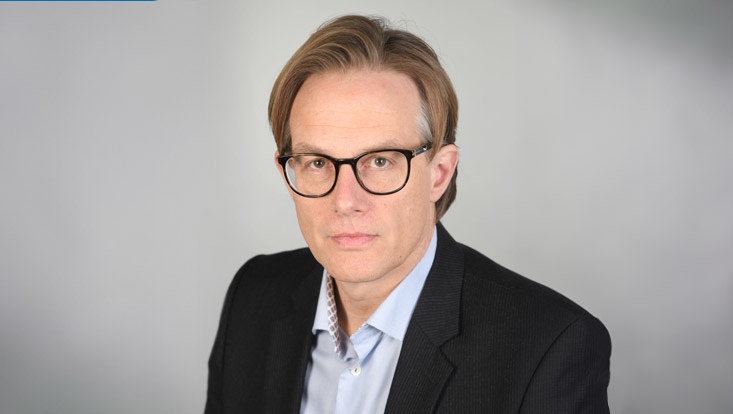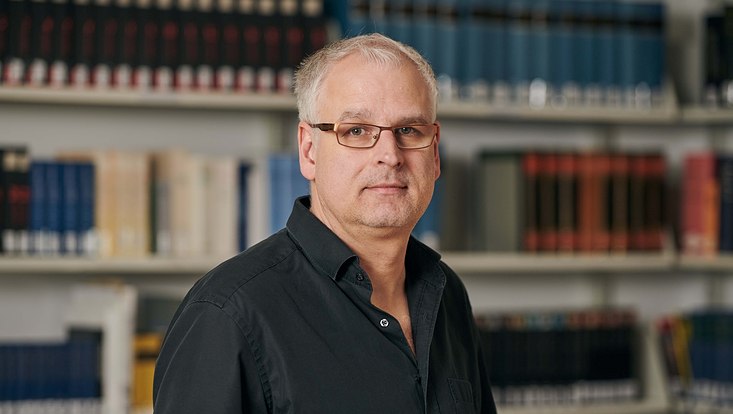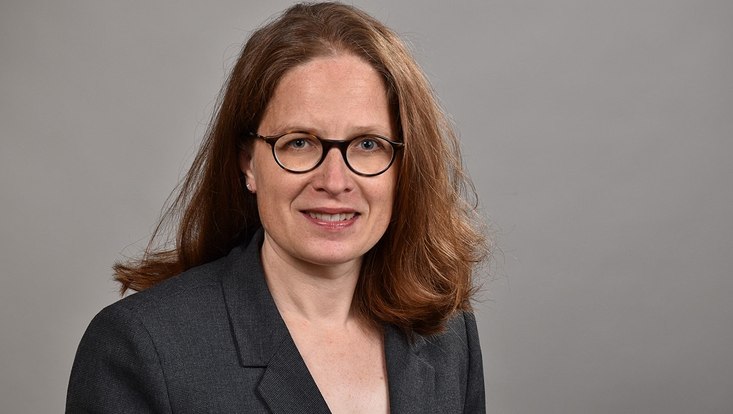Welcome aboard!Facilitating a sense of belonging and well-being in young people when they face crisis or disruptionProf. Dr. Stefan Köngeter strengthens the Faculty of Education.
11 April 2024, by Köngeter/Gießelmann

Photo: Private
Every year, Universität Hamburg welcomes numerous new researchers. This series introduces them and their areas of research. This time: social educator Prof. Dr. Stefan Köngeter.
Prof. Dr. Stefan Köngeter joined the University from the University of Applied Sciences and Arts in Northwestern Switzerland to take up a professorship with a focus on social education.
My research area in brief:
My applied research revolves around support for children and adolescents, especially in the field of juvenile shelters and foster families. I am concerned with decentralizing the professional view of these kinds of help and focusing on the perspectives the children and adolescents have of their own personal lives in juvenile shelters and foster families. How do they experience their housing or homes? How do they integrate these experiences into their personal lives? How do they develop a sense of belonging to others and to social spaces?
Another area of my research focuses on how to shape organizations in the area of social education and social work. I focus on diversity in organizations and its significance for the organizations’ services.
Finally, I am interested in the history of social education and social work from a transnational perspective and I am looking, above all, at translating knowledge and ideas across national borders.
This is how I explain my research to my family:
Because my wife is a professor of social work, I often ask her for advice and we talk a lot about the topics that we share professionally. I also talk to my children and friends about other topics.
But if it must be, then the answer is: “I have 3 central questions. How do we as a society give young people a sense of belonging and well-being in times of crisis or disruption? How do we create organizations that help rather than harm people? And how can we learn to acknowledge and appreciate diversity in society?"
My research is important to society because:
Especially in an increasingly polarized society, it seems to me that it is especially important for education science, and especially for social education, to contribute our expertise to initiate translation processes between conflicting interests and in societal conflicts. This happens at a small scale when we inspire families, communities, or organizations to organize help and shape dialogue and educational processes. It also happens at a large scale when we guide policy in communities, states, at the national level, and internationally with regard to social and charitable processes.
This is why students should attend my courses:
I like to work on a project basis in my courses, meaning bridging the gap between theoretical foundations and conceivable practical cases in which interventions are planned or executed. This is challenging for both sides because we all have to grasp that this kind of joint process cannot be entirely planned from the outset. But hey! That’s exciting and we all learn something!
These are my plans at Universität Hamburg:
“Yes, make yourself a plan! Just to light the way! Then make another plan that you can throw away.” Brecht’s warning seems to me, especially in light of increasing collaboration in academia, very timely. Still, international research on shaping organizations, a network to conduct diversity research in social work organizations, and the implementation of project-based courses provide, at the least, some orientation for the time ahead at Universität Hamburg, which I have yet to explore.
Reaching out to the world: I work with the following international and federal institutions and universities:
A focus country for me is Canada and in particular Toronto, where my family and I go again and again for longer periods. I have cultivated very good working relations with York University and the Toronto Metropolitan University.
Another focus is Israel. Together with colleagues doing research on childhood and adolescence as well as in political science, I have already conducted several research projects. Professor John Gal and Prof. Idit Weiss-Gal were also visiting professors at the Eastern Switzerland University of Applied Sciences.
Naturally, I have excellent and close contacts to colleagues at Switzerland’s universities of applied sciences and I am looking forward to initiating joint bi-national projects here. Finally, I am active in the European Social Work Research Association and the international research network Leaving Care (INTRAC).
In Hamburg, the city and the University, I am looking forward to:
As an Allgäu native and ethnographically interested social educator, I am very much looking forward to being surprised and inspired by strange routines and rituals and by my new colleagues and to breathe the cosmopolitan air of Hamburg.


